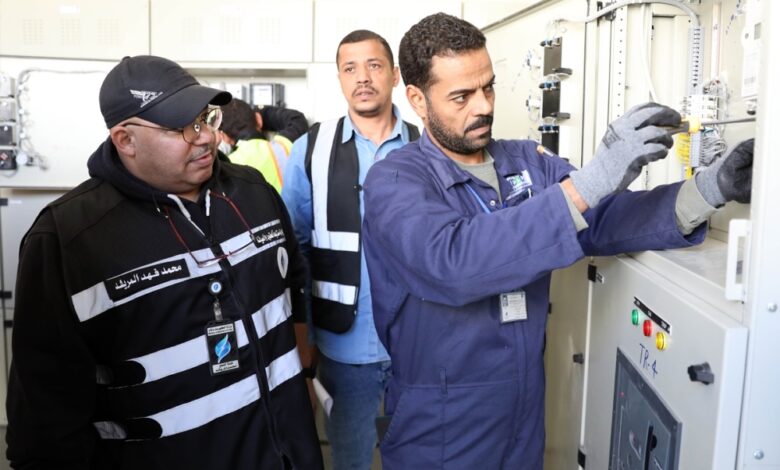Alternative penalties signal new era in Kuwait’s criminal policy
Authorities stress the need to safeguard state rights and deter reckless driving, but argue violators should avoid prison with serious criminals, instead receiving opportunities for reform and behavioral correction through alternative measures.

• Specialists noted that the reform strikes a balance between deterrence and rehabilitation, protecting state rights while keeping offenders away from hardened criminals, thus lowering the risk of encouraging further criminal behavior.
Amid the rise in traffic accidents and their associated human and material losses, as well as the mounting backlog of related cases in Kuwaiti courts, calls have grown for updated legal measures that address violations more effectively, reported Al Jarida newspaper.
Authorities argue that while it is necessary to protect the state’s rights and deter reckless driving, violators should not be imprisoned alongside criminals such as drug traffickers. Instead, they should be given an opportunity to reform their behavior.
Responding to this need, First Deputy Prime Minister and Minister of Interior Sheikh Fahad Al-Yousef approved an amendment to the executive regulations of Traffic Law No. 67 of 1976. The amendment introduces a new article, numbered 212 bis, which authorizes courts to replace prison sentences in certain traffic misdemeanor cases with alternative penalties. These alternatives include community service, participation in rehabilitation and awareness programs, or compensation for damages caused.
Under Article 212 bis, judges may assign convicts to perform unpaid work for the public benefit, provided the tasks are suited to their circumstances. The General Traffic Department will organize rehabilitation programs, training, and lectures in cooperation with government bodies, private institutions, and public benefit associations.
Specialists told the newspaper that the reform balances deterrence with rehabilitation by upholding state rights while preventing offenders from being exposed to hardened criminals, thereby reducing the risk of fostering further criminal behavior.
Traditional punishments risk worsening behavior, says Al-Rumaidhi
Dr. Abdullah Al-Rumaidhi, professor of law at Kuwait University, explained that the purpose of penalties under the Penal Code is reform, not revenge, with the ultimate goal of ensuring security for society.
He said the alternative punishment system fulfills this aim by involving convicts in socially beneficial work while correcting their behavior.
Many offenders, he noted, may have clean records but acted recklessly; such individuals can be rehabilitated without resorting to prison or fines. Traditional punishments, he warned, risk worsening behavior as detainees mix with criminals, whereas alternative measures help reintegrate them positively into society.
Alternative penalties a qualitative shift in criminal policy, says Attorney Khaled Al-Suwaifan
Secretary-General of the Kuwait Lawyers Association, Attorney Khaled Al-Suwaifan, welcomed the decision to introduce the alternative sentencing system, calling it a significant step in Kuwait’s legislative and judicial development that aligns with global trends balancing deterrence and reform. He described alternative penalties as a qualitative shift in criminal policy, focusing on repairing harm and serving society rather than relying solely on imprisonment or fines.
Al-Suwaifan noted that such measures reduce overcrowding in correctional facilities, ease pressure on the penal system, and direct individuals’ efforts toward community service, awareness programs, and public benefit activities. He stressed that this approach lessens the social and economic burdens of imprisonment while advancing a more just and humane judicial system.
Alternative punishments in traffic cases benefit both individuals and society, says Dr. Saad Al-Shabo
Dr. Saad Al-Shabo, former director of the Family Fostering Department, said alternative punishments in traffic cases benefit both individuals and society, especially since such offenses are not serious enough to warrant imprisonment. He noted that many imprisoned for minor violations often leave prison more deviant after mixing with hardened criminals.
Al-Shabo explained that alternative penalties ease prison overcrowding, cut costs, support rehabilitation, and promote restorative justice by compensating society for damages.
Laws should focus on guidance as well as deterrence, says Dr. Habib Abel
Dr. Habib Abel, professor at Kuwait University’s College of Medicine, added that alternative sentencing is a new experience for Kuwait that could raise awareness and prevent repeat violations. He stressed that laws should focus on guidance as well as deterrence, helping offenders reintegrate into society.
Abel warned that some traffic laws remain too lenient, encouraging repeat offenses. From a health perspective, he highlighted that traffic accidents cause not only physical injuries but also long-term psychological effects, adding pressure on the healthcare system.
He urged the Ministry of Interior to adopt stronger measures, update vehicle insurance laws, and develop effective solutions to protect lives, reduce accidents, and lessen social and medical burdens.
Fines alone, without real enforcement or innovative solutions, weaken deterrence, says Fouad Al-Maqahwi
Kuwaiti heritage researcher Fouad Al-Maqahwi said traffic violations are common everywhere, making awareness and caution a duty for all citizens. He stressed that fines alone, without real enforcement or innovative solutions, weaken deterrence. Instead, he suggested replacing some violations with social penalties such as street cleaning or awareness programs.
Al-Maqahwi warned that imposing fines without community engagement or awareness campaigns may cause public dissatisfaction, especially over minor violations, undermining the true goal of traffic regulations—to serve and protect society.
Follow The Times Kuwait on
X, Instagram and Facebook for the latest news updates












